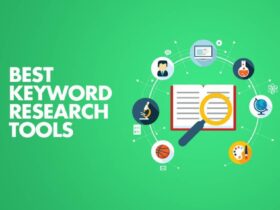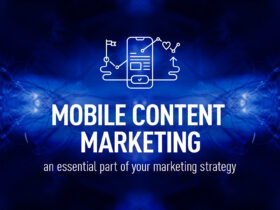Search engine optimization is one of a kind, not a pay-in step with click-on advertising. While they percentage the goal of using searchers to a website, you couldn’t expect immediate results in search engine optimization that paid search frequently produces. Likewise, drawing close to PPC with a search engine marketing orientation misses opportunities.

The Right to Rank
With search engine optimization, you earn the right to rank in search outcomes. You pay for that properly in PPC.
Content relevance is important in SEO. There’s minimal risk that you could rank on page one for any term irrelevant to your website’s content material. No web page has the proper rank, regardless of how large the emblem is or how much it spends on content material.
Organic scores are, in large part, based totally on searchers’ motives. For instance, an e-commerce website online is much less likely to rank for an informational phrase, including “the way to polish boots.” The websites that rank for that phrase are military and fashion blogs or instructional. In twenty years of analyzing statistics, Google has determined that searchers have expectations based on their keywords. When a natural list doesn’t meet that want, searchers are much more likely to get better at choosing any other result. In turn, that contributes less pride with seeking consequences typical (and the quest engine).
In paid seek, lower relevance affects your Quality Score — Google’s dimension of the page is high-quality, and the relevance among your commercials and your content material influences the price per click. But if you’re inclined to grow the bid, you could still rank in paid seek, while the content couldn’t rank in organic seek.
Links
Beyond relevance, the authority on a website with links is central in organic seek algorithms. If your website lacks the great number of hyperlinks required to outrank the competition for a seek phrase, then it’s much less likely to rank. However, linkless touchdown pages are usually carried out properly in paid search — touchdown pages are the desired technique, while specific messages won’t be suitable for the wider website audience.
; The hierarchy of your website’s internal linking and navigation demonstrates to search engines like Google which pages are extra valuable. Internal hyperlinks are essential as nicely for search engine marketing; however, they are no longer for PPC. More hyperlink authority flows to pages that might be linked from the house web page or the header and footer navigation, giving them a stronger hazard to rank and force sales. Conversely, landing pages may be orphaned from the relaxation of the site and still perform nicely in PPC.
Appearance of Listings
Organic search results are shrinking. This is better for advertisers but no longer for SEO. Ads on Google seek consequences, rank first, remain on the page, and sometimes, to the right of natural outcomes. Even the content in position 0 — Google’s featured natural “answer box” snippets — is regularly pushed down the page. Those equal answer boxes can produce fewer site visitors, but searchers are less likely to click on them while reading the answer on the results page. So, while you can capture many more eyeballs in a featured snippet, that’s traffic that would have long gone on your website during years past. Ads are not eligible for featured snippet placement.
Another oddity of organic search is Google’s inconsistent use of based facts. We can use Schema.Org markup, but there’s no way to guarantee that Google will apply it for saw-featured snippets and wealthy snippets, including criteria photographs and pricing. The content material presented in the organic search consequences list is usually primarily based on that page’s name tag and meta description — less the quest engine decides that other words from the web page could be extra relevant to the searcher’s question. But with PPC ads, while you specify replica, that’s the wording that is a good way to display.
Costs
PPC commercials are trackable using keywords—from impressions to clicks to revenue. You can effortlessly determine which key phrases pressure the maximum cost. That’s no longer the case with search engine marketing. Google is no longer known to show the relationship between keywords and conversion, which is too relaxed.
Organic search entrepreneurs can see Google and Bing traffic records by keyword in Google Search Console or Bing Webmaster Tools, but they are no longer in an analytics bundle. There’s a document for organic key phrases in Google Analytics, but the “no longer furnished” row debts for 75 to ninety-five percent of the data. What remains is not appropriate for decision-making, in my opinion.
Analytics platforms expect all visitors from search engines like Google to be an organ, so you don’t need to for search engine optimization track. PPtrackinge visitors should be tagged to music through the group, campaign, and other traits. Segmenting seek traffic may be useful. However, the placement of tags is liable to human blunders and may result in statistics loss.
SEO practitioners make suggestions but frequently depend on others—developers, designers, copywriters, and operations workers—to implement them. Alternatively, the PPC workforce can execute a lot of the work themselves. They generally want help with landing pages and monitoring elements. However, they could manipulate campaign structure and bidding. Thus, PPC advertisements are frequently quicker to launch than search engine marketing.











